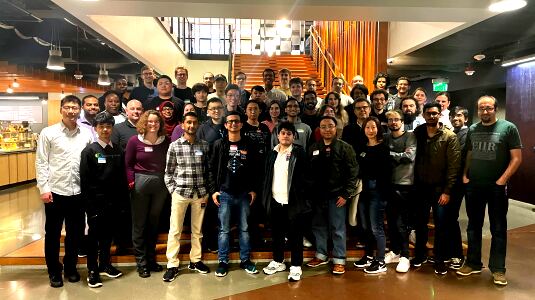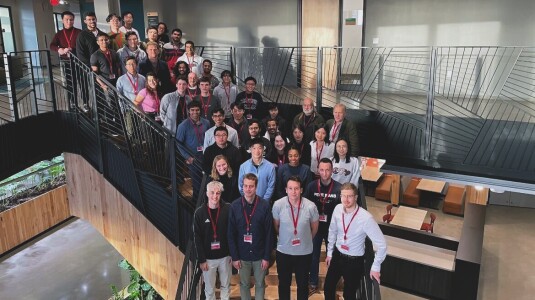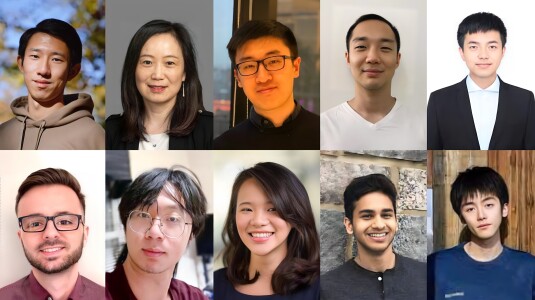Dialog systems operate within restricted domains. While useful, these systems are not capable of having natural conversations of the quality that people expect from each other. Human-like conversational skills are difficult for machines to replicate. Key abilities include being able to engage on a wide range of subjects (``open domain''), conversational intelligence (tracking context, monitoring progress) and social intelligence (building and maintaining a satisfying relationship). We propose to develop solutions to these challenges to allow our socialbot, Tartan, to approach a human capacity for natural conversations.
Fanglin C. - Team leader
Fanglin is a Ph.D. candidate at Carnegie Mellon University, in the Human-Computer Institute of the School of Computer Science. Fanglin has a research background in mobile computing, information retrieval, and intelligent agent. Fanglin is interested in knowledge-grounded conversation models.
Oleksandr R.
Oleksandr is a fourth year Ph.D. student at Carnegie Mellon University, in the Algorithm, Combinatorics and Optimization program based in the Mathematical Department. Alex has research expertise in designing and optimizing algorithms, as well as passion and experience with Artificial Intelligence and Natural Language Processing. On top of his research, Alex loves teaching and coaching students. He served as Deputy Leader of the USA team at the International Mathematical Olympiad.
George L.
George is a second-year masters student excited about NLP and dialog. As a participant of last year’s Alexa Prize he is excited to apply the lessons he learned to make the best chatbot yet ;)
Dravyansh S.
Dravyansh is a Ph.D. candidate at Carnegie Mellon University, in the Computer Science Department. Dravyansh is interested in machine learning theory and applications of machine learning, in particular to natural language processing. His research experience includes online optimization and speech processing.
Hongyi Z.
Hongyi is a Masters student at the Language Technologies Institute at Carnegie Mellon University. With dual background in artificial intelligence and cognitive psychology, Hongyi is widely interested in topics that involve both fields, including natural language processing. Hongyi has conducted research in adversarial attacks, educational data mining and computational psychiatry, where each field he believes can benefit the understanding of intelligence in both a humane and a computational fashion.
Shiyang L.
Shiyang is an experienced multidisciplinary designer focused on anticipating and testing users' needs to create design solutions that are simple, elegant, and delightful. She is a Master's student in the Human-Computer Interaction Institute at Carnegie Mellon University.
Ta-Chung C.
Ta-Chung is a graduate student in language technologies institute at CMU. His research interest includes dialogue system and natural language understanding.
Tanmay P.
Tanmay is a first year Masters student at CMU. His major interests are in the field of NLP and ML, exploring topics like code-switching, interpretability, and language generation.
Rishabh J.
Rishabh is a first-year student in the Masters in Language Technologies program at CMU working with Profs. Alan Black, Yulia Tsvetkov and Alex Rudnicky. He is broadly interested in dialogue systems such as Negotiation and Persuasion. Rishabh is also interested in studying computational Propaganda and in trying to incorporate external knowledge into NLP systems. He graduated from BITS Pilani, India, where he worked with Prof. Partha Talukdar on Knowledge Graphs and Relation Extraction.
Alex Rudnicky - Faculty advisor
Alexander is a Professor Emeritus at Carnegie Mellon University, in the Language Technologies Institute of the School of Computer Science. Dr. Rudnicky's research has spanned many aspects of spoken language, including knowledge-based recognition systems, language modeling, spoken language system architectures, multi-modal interaction, analysis of conversational structure, and design principles for speech interfaces. He has been active in research into spoken dialog, and has made contributions to dialog management, language generation, confidence metrics for recognition and understanding and human-robot interaction. Dr. Rudnicky is interested in the induction of concepts and task structure from speech, and proactively acquire of knowledge through dialog.




